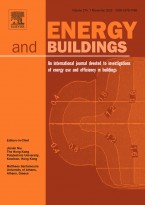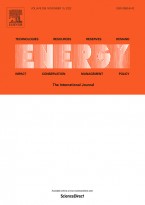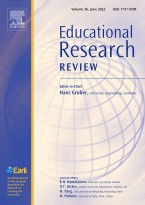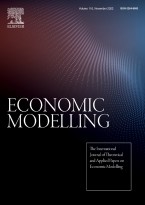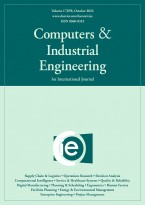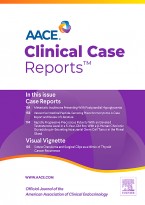
چکیده فارسی
تظاهرات بالینی مختلف مربوط به زیرویریلیزاسیون در سه بیمار XY با همان نوع بیماریزای عامل استروئید 1
هدف در طول دوره قبل از تولد، فاکتور 1 استروئیدوژنیک برای رشد غدد فوق کلیوی و برای تعیین و تمایز غدد جنسی مورد نیاز است و پس از تولد، تشکیل سلول های پیش ساز گناد و بقای آنها را تنظیم می کند. در اینجا، ما فنوتیپ بالینی سه بیمار 46، XY (2 برادر و یک موضوع غیرمرتبط) را با اختلال رشد جنسی به دلیل نوع ژنتیکی یکسان توصیف میکنیم. MethodsAll بیماران تحت مطالعات سونوگرافی هورمونی و لگنی قرار گرفتند. تجزیه و تحلیل توالی و آزمایش حذف/تکثیر پانل شامل 8 ژن (AR، DHH، MAP3K1، NROB1، SRD5A2، SRY، WT1، و زیرخانواده گیرنده هسته ای 5، گروه A، عضو 1 [NR5A1]) در موارد شاخص انجام شد. تمام اعضای خانواده برای حضور نوع NR5A1 مورد آزمایش قرار گرفتند. ResultsA گونه ای که قبلاً به عنوان بیماریزای احتمالی در NR5A1 (c.251G>A، p.Arg84His) توصیف شده بود که در 1 خانواده با درجات مختلف زیر ویریلیزاسیون جدا شده بود، پیدا شد. مورد شاخص خانواده 1 (IV2) و برادرش (IV3) نمره مقیاس مردانگی خارجی 5/12 داشتند، اما فقط مورد شاخص دارای بقایای مولر بود. با این حال، بیمار خانواده 2 نمره خفیف 9/12 داشت. اقوام زن مسن تر خانواده 1 که دارای این نوع هستند یائسگی زودرس را تجربه کردند. نتیجه گیری بر اساس دانش ما، این اولین گزارشی است که در آن گونه c.251G>A (p.Arg84His) با حضور بقایای مولرین در افراد 46، XY و نارسایی اولیه تخمدان در 46، XX افراد مرتبط است. جداسازی این گونه با تظاهرات بالینی شواهد بیشتری برای در نظر گرفتن آن به عنوان بیماری زا فراهم می کند.
کلمات کلیدی:چکیده انگلیسی
Different Clinical Manifestations Related to Subvirilization in Three XY Patients With the Same Pathogenic Variant of Steroidogenic Factor 1
Objective During the prenatal period, steroidogenic factor 1 is required for the development of the adrenal glands and for gonadal determination and differentiation, and after birth, it regulates gonadal progenitor cell formation and their survival. Here, we describe the clinical phenotype of three 46,XY patients (2 brothers and an unrelated subject) with disorder of sex development due to the same genetic variant. Methods All patients underwent hormonal and pelvic ultrasound studies. Sequence analysis and deletion/duplication testing of a panel encompassing 8 genes (AR, DHH, MAP3K1, NROB1, SRD5A2, SRY, WT1, and nuclear receptor subfamily 5, group A, member 1 [NR5A1]) were performed in the index cases. All family members were tested for the presence of the NR5A1 variant. Results A variant previously described as likely pathogenic in NR5A1 (c.251G>A, p.Arg84His) that segregated in 1 family with different degrees of under-virilization was found. The family 1 index case (IV2) and his brother (IV3) had an external masculinization scale score of 5/12, but only the index case had Müllerian remnants; however, the family 2 patient had a milder score of 9/12. The older female relatives of family 1 who harbor this variant experienced premature menopause. Conclusion To our knowledge, this is the first report where the c.251G>A (p.Arg84His) variant is associated with the presence of Müllerian remnants in 46,XY subjects and primary ovarian insufficiency in 46,XX individuals. The segregation of this variant with clinical manifestations provides further evidence for considering it as pathogenic.
Keywords:sexual differentiation disorder ، steroidogenesis ، type 1 steroidogenic factor
